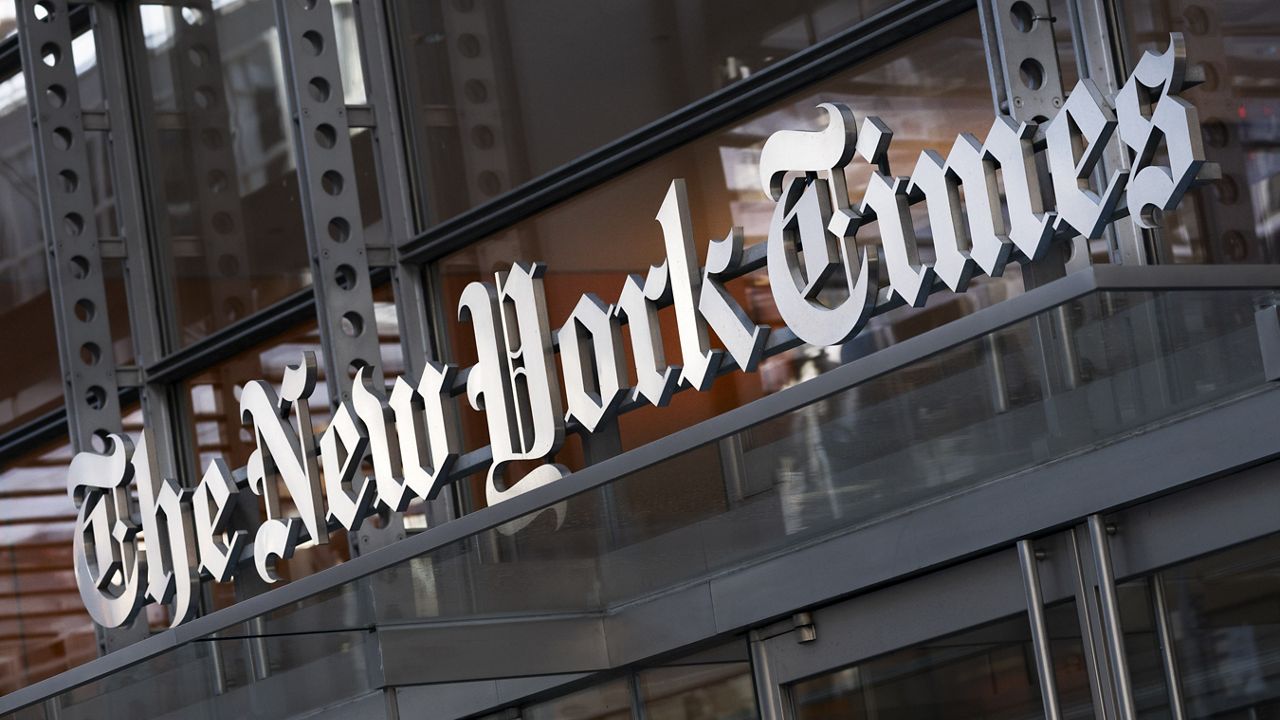The New York Times announced Wednesday that it has sued OpenAI and Microsoft for copyright infringement. The suit alleges the companies used millions of Times articles to train its artificial intelligence programs.
Filed in Federal District Court in Manhattan, the lawsuit is the first to be wagered against an AI platform by a major news outlet in the U.S.
The New York Times claims its articles “were used to train automated chatbots that now compete with the news outlet as a source of reliable information,” according to a story The Times published Wednesday. The lawsuit is not seeking monetary damages. Instead, it is asking the companies “to destroy any chatbot models and training data that used copyrighted material from The Times.”
Valued at about $80 billion, OpenAI has received more than $10 billion in funding from Microsoft, which reportedly owns a 49% stake in the company.
“We respect the rights of content creators and owners and are committed to working with them to ensure they benefit from AI technology and new revenue models," an OpenAI spokesperson told Spectrum News. "Our ongoing conversations with the New York Times have been productive and moving forward constructively, so we are surprised and disappointed with this development. We’re hopeful that we will find a mutually beneficial way to work together, as we are doing with many other publishers.”
Microsoft has not responded to Spectrum News’ request for comment about the lawsuit.
“Defendants seek to free-ride on The Times’s massive investment in its journalism” and “create products that substitute for The Times and steal audiences away from it,” according to the complaint.
Chatbots such as OpenAI’s ChatGPT are able to scavenge readership from the paper by generating answers based on The Times’s reporting, the lawsuit alleges. Securing information through ChatGPT runs the risk of pulling readers away from the paper’s website and could result in a cascade of deleterious consequences — eroding the web traffic the paper relies upon for revenue with paid subscriptions and advertising.
In its story about the lawsuit, the New York Times said it had reached out to Microsoft and OpenAI in April to find an amicable resolution to the tech companies’ use of The Times’s intellectual property, but the two sides failed to come to an agreement.
“If the Times and other news organizations cannot produce and protect their independent journalism, there will be a vacuum that no computer or artificial intelligence can fill,” the New York Times article said, citing the complaint. “Less journalism will be produced, and the cost to society will be enormous.”
The New York Times lawsuit comes as multiple AI companies develop programs to write news articles and as more media outlets are experimenting with the technology. In January, CNET said it had published several feature articles as an experiment, after another news outlet spotted numerous errors in the stories. In November, Sports Illustrated was outed for publishing stories by authors who did not exist.
The New York Times is the latest in a string of copyright holders to sue OpenAI this year. In June, the authors Paul Tremblay and Mona Awad filed a lawsuit against the company alleging copyright infringement. In July, comedian and author Sarah Silverman filed a similar lawsuit against OpenAI on the same grounds.
In September, George R.R. Martin, Jodi Picoult, Michael Connelly and dozens of other A-list authors filed a class-action lawsuit against the company, alleging copyright infringement. The suit alleges OpenAI copied their work without permission or consideration and fed it into so-called large language models that generate sequences of words to predict a subsequent word and generate text.
Another group of writers, including Pulitzer Prize winner Michael Chabon, filed a similar lawsuit against OpenAI for its alleged illegal use of their work to train the company’s artificial intelligence software and for profits earned from illegally using the authors’ copyrighted materials.
Several actors have also claimed artificial intelligence programs have been used to steal their likenesses and voice. In September, actor Stephen Fry claimed AI had been used to steal his voice for narration. The audiobook narrator for the “Harry Potter” series in England told Forbes his artificial voice could “have me read anything from a call to storm Parliament to hard porn, all without my knowledge and without my permission.”
A few weeks later, Tom Hanks warned fans that an artificial intelligence version of his likeness was being used to promote a dental service. Hanks wrote on Instagram he had nothing to do with it.
With public outcry over Ai intensifying, congressional committees have held more than 10 meetings so far this year on how to establish guardrails for the nascent technology.



